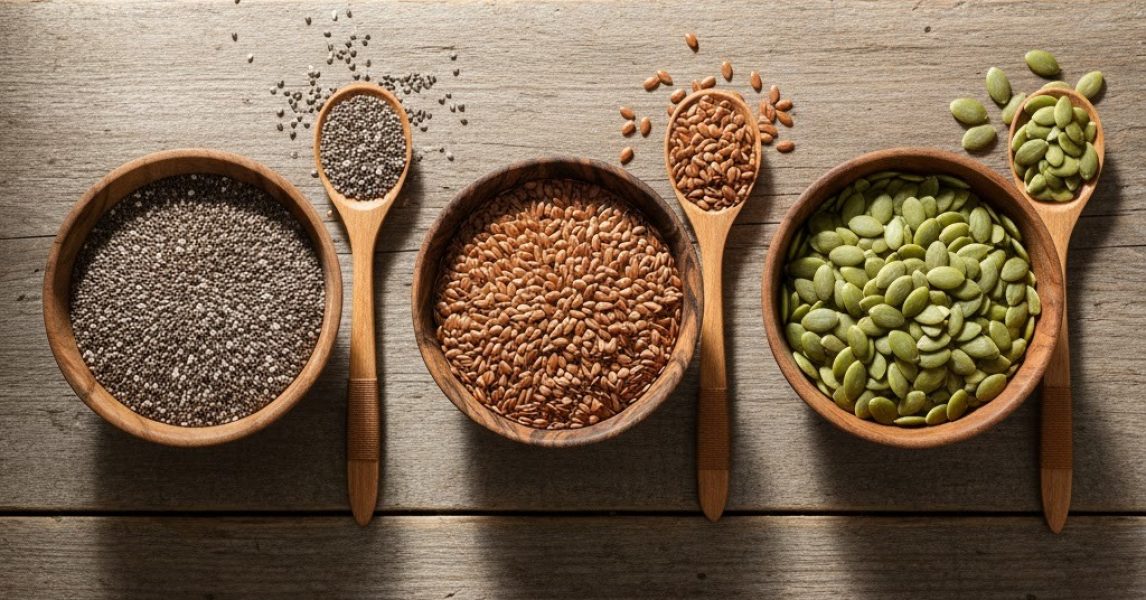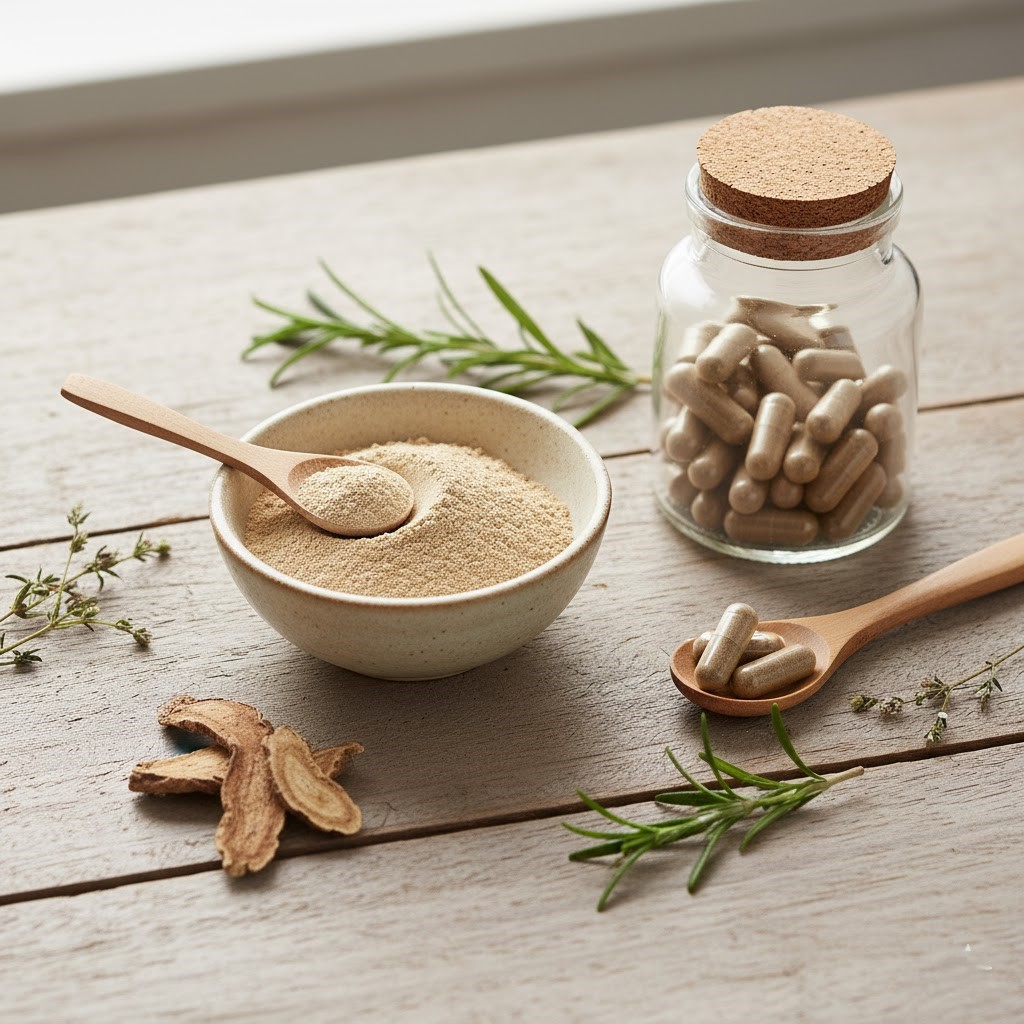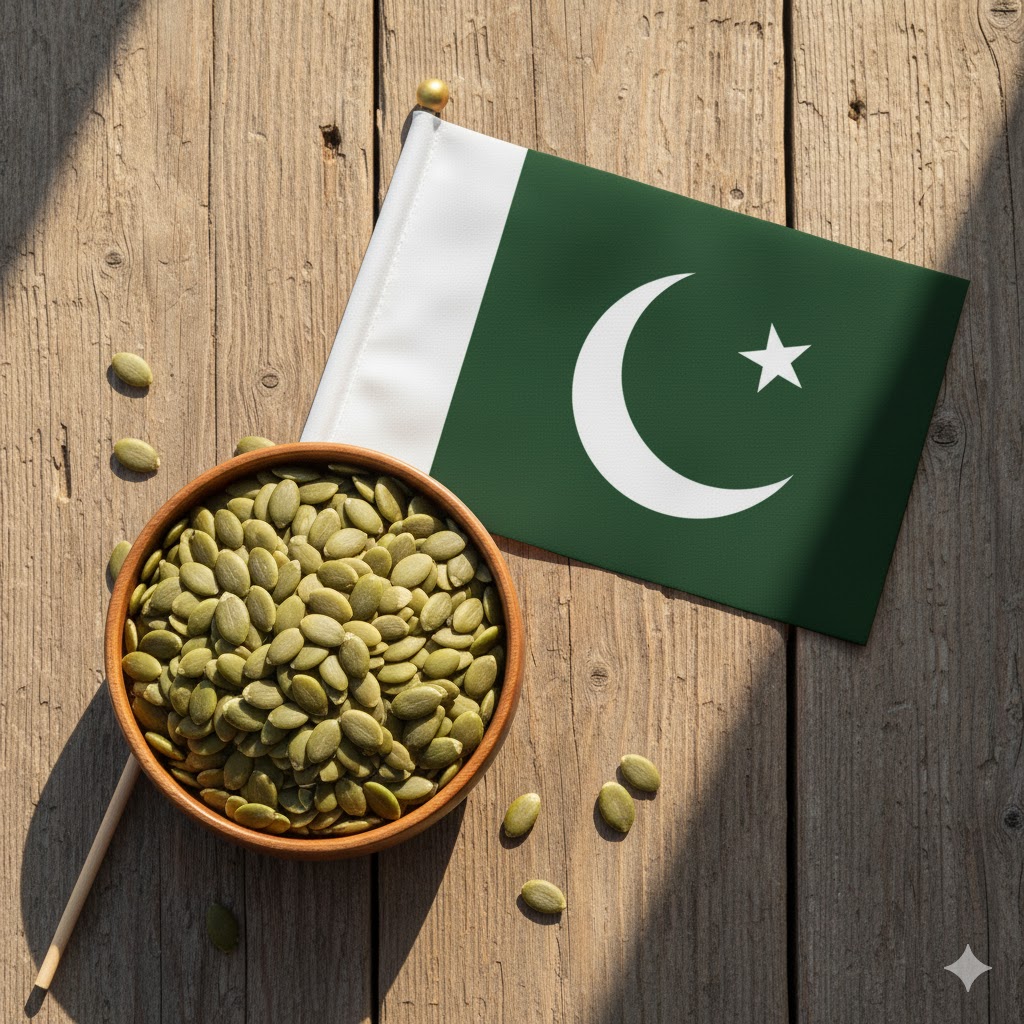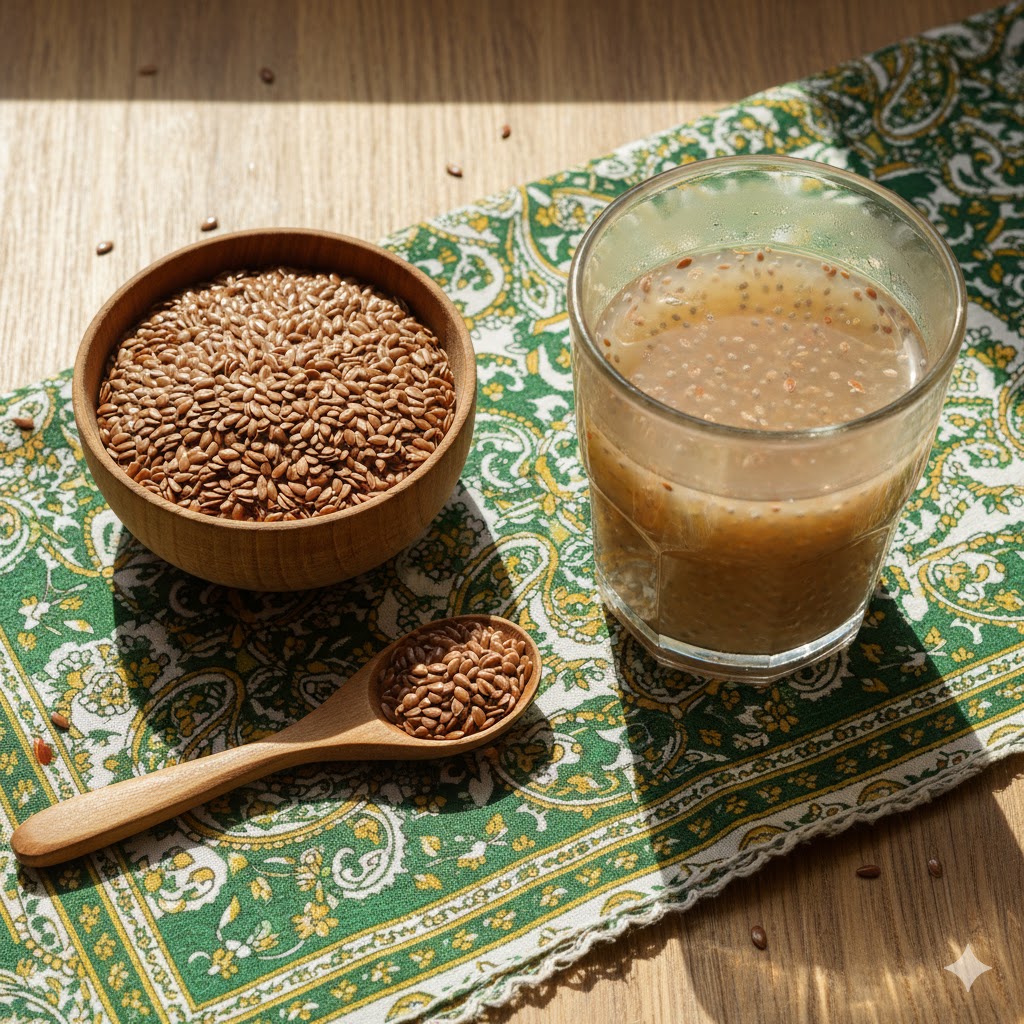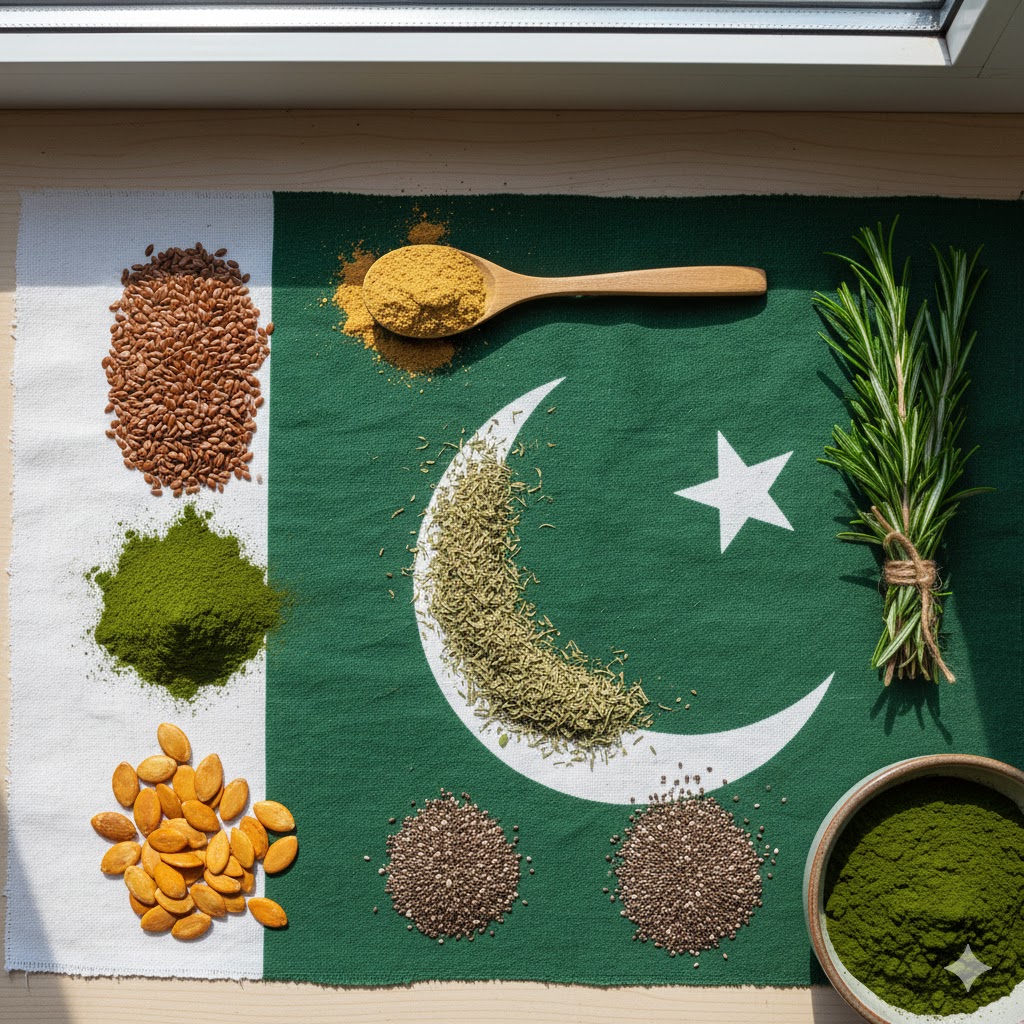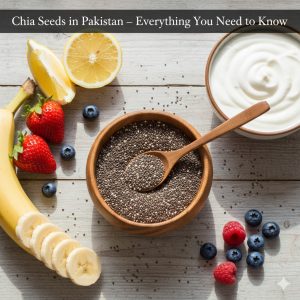In today’s health-focused world, small foods can deliver big benefits — and seeds are the perfect example. Among the most powerful are chia, flax, and pumpkin seeds, each offering unique nutrients proven to improve heart health, support weight loss, and nourish skin and hair.
This article explores the benefits of flax chia and pumpkin seeds backed by credible scientific research — plus, where to buy authentic organic seeds in Pakistan at the best prices from saddar.com.pk.
1. The Power of Chia Seeds
1.1 What Makes Chia Seeds So Special
Chia seeds (Salvia hispanica) are tiny black or white seeds loaded with omega-3 fatty acids, fiber, calcium, and antioxidants. They’ve been part of human diets for centuries and are often called super seeds because of their dense nutritional profile.
According to a 2021 study published in Nutrients Journal, chia seeds contain over 30% dietary fiber and 20% plant protein — ideal for digestion, muscle health, and energy regulation.
1.2 Chia Seeds for Weight Loss
Many fitness experts recommend chia seeds for weight loss, and science supports this. The soluble fiber in chia forms a gel-like consistency in the stomach, slowing digestion and helping you feel fuller for longer.
A clinical trial published in the Journal of Nutrition and Metabolism (2017) found that participants who consumed chia seeds daily experienced reduced hunger and modest weight loss over 12 weeks.
How to use: Add a tablespoon of chia seeds to water, smoothies, or yogurt. Drinking chia seeds in water before meals helps manage appetite and supports metabolism naturally.
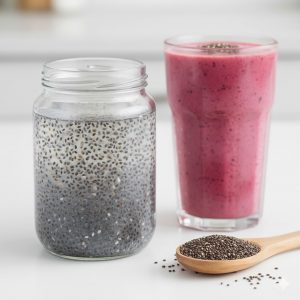
1.3 Chia Seeds for Skin & Hair
When it comes to beauty, chia seeds benefits for skin are remarkable. The omega-3s help fight inflammation, reducing acne and promoting skin elasticity. Their antioxidants also protect against UV damage and early aging.
For hair, chia’s protein and zinc improve follicle strength and shine. Many women now include chia seeds for hair masks or consume them daily for long-term benefits.
A 2020 review in Dermato-Endocrinology linked omega-3 intake with improved skin barrier function and hydration, confirming chia’s natural glow-enhancing powers.
While chia is becoming popular in Pakistan, many people confuse it with basil seeds, known locally as tukh malanga. Although both swell up in water and look similar, tukh malanga and chia seeds are different in origin and nutrition. Chia seeds (Salvia hispanica) are richer in omega-3 fatty acids, while tukh malanga offers more cooling properties. Both can be part of a healthy diet, but chia seeds offer more complete nutritional value backed by scientific studies.
1.4 Chia Seeds for Women’s Health
Chia seeds are particularly beneficial for women due to their high calcium and magnesium levels — nutrients essential for bone health and hormonal balance. Studies in The Journal of the American College of Nutrition highlight that chia may support menstrual health and aid in managing weight loss by chia seeds during hormonal shifts.

They are also safe during pregnancy (in moderate amounts), providing fiber and essential fatty acids for both mother and baby.
1.5 Possible Side Effects of Chia Seeds
While chia is highly nutritious, overconsumption can lead to bloating or digestive discomfort. People with blood pressure or thyroid conditions should consult a healthcare provider before daily use.
🛒 Pro Tip:
You can buy 100% organic chia seeds at saddar.com.pk — Pakistan’s most trusted online wholesale marketplace for natural and organic foods.
2. Flax Seeds: Tiny Grains with Big Benefits
2.1 Nutritional Overview
Flax seeds (Linum usitatissimum) are among the richest plant sources of omega-3s (ALA), lignans (natural antioxidants), and soluble fiber.
A 2019 meta-analysis published in the American Journal of Clinical Nutrition revealed that daily flaxseed intake helps lower bad cholesterol (LDL) and supports heart health.
2.2 Flax Seeds for Weight Loss
Flax seeds are excellent for those aiming to shed extra pounds. Their high fiber content increases satiety, while ALA fatty acids improve metabolism.
Research from Appetite Journal (2018) shows that consuming 30 grams of flaxseed daily can significantly reduce hunger and calorie intake — making them one of the best seeds for weight loss.
How to use flax seeds for weight loss: Mix ground flax seeds into oatmeal, smoothies, or yogurt. Eating them on an empty stomach may also support digestion and fat metabolism.
2.3 Flax Seeds for Skin & Hair
Flax seeds benefits for skin include reducing acne, improving skin tone, and boosting collagen. Their lignans have natural estrogenic properties that promote glowing, youthful skin.
For hair, flax seeds for hair growth are a natural remedy because of their vitamin E and omega-3 content. Regular consumption improves scalp circulation and strengthens follicles.
2.4 Flax Seeds for Female Health & Fertility
Flax seeds contain phytoestrogens that help balance hormones — a boon for women dealing with PMS or menopause. A study in Fertility and Sterility (2015) found that flaxseed supplementation supports reproductive health and may aid fertility.
Additionally, flax seeds benefits for female populations include reduced menopausal hot flashes and improved skin elasticity.
2.5 Digestive & Heart Benefits
The soluble fiber in flax improves bowel movement, preventing constipation — especially when eating whole flax seeds. Moreover, regular intake supports blood pressure control and uric acid reduction, according to research in the Journal of Nutrition Research (2020).
In Pakistan, many readers also search for flax seeds benefits in Urdu to understand their traditional health uses. In Urdu wellness communities, flax seeds are often recommended for improving digestion and metabolism. When it comes to eating whole flax seeds constipation, nutrition experts suggest using ground flax seeds instead, as they are easier to digest and more effective in relieving constipation naturally.
Flax seeds also play a role in managing uric acid levels. A 2020 study published in the Journal of Food Biochemistry found that regular consumption of flax seed powder helped reduce uric acid buildup and supported joint health, making flax seed for uric acid an emerging home remedy for gout and arthritis prevention.
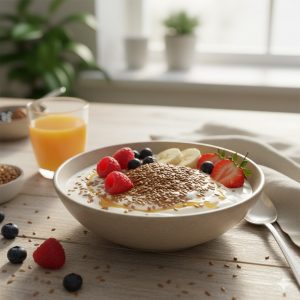
🛒 Pro Tip:
Buy pure flax seeds in Pakistan at saddar.com.pk, where organic quality meets wholesale pricing.
3. Pumpkin Seeds: Nutrient-Dense Powerhouses
3.1 Nutrition Profile
Pumpkin seeds (Cucurbita pepo) are rich in magnesium, zinc, iron, and plant-based protein. According to the Journal of Food Science (2020), a 30g serving provides nearly 9g protein — making them one of the best natural sources for vegetarians.
3.2 Pumpkin Seeds for Men’s Health
Pumpkin seeds are famous for supporting prostate and reproductive health in men. Research in the Urology Journal (2016) found that pumpkin seed oil supplementation improved urinary function and reduced symptoms of benign prostatic hyperplasia (BPH).
The zinc and antioxidants in pumpkin seeds benefits for men also help boost testosterone levels naturally.
3.3 Pumpkin Seeds for Weight Loss & Immunity
Thanks to high protein and fiber, pumpkin seeds weight loss benefits are impressive. They keep hunger at bay while supporting lean muscle growth.
They’re also rich in magnesium, which strengthens immunity and aids muscle recovery after workouts.
How much pumpkin seeds to eat daily: About 1–2 tablespoons (30 grams) per day is sufficient for most adults.
3.4 Pumpkin Seeds for Skin & Hair
Zinc and vitamin E in pumpkin seeds enhance skin tone and prevent acne. The seed oil hydrates dry skin and reduces inflammation.
According to Dermatologic Therapy (2021), zinc-rich diets correlate with improved hair growth and reduced dandruff — validating pumpkin seed oil use in hair care.
3.5 Additional Benefits
- May help regulate blood sugar levels
- Supports heart health due to high magnesium content
- Improves sleep because of tryptophan, a natural amino acid promoting relaxation
For local audiences exploring natural remedies, pumpkin seeds benefits in Urdu are often discussed in traditional wellness forums. In Urdu health literature, pumpkin seeds are praised for improving men’s health, promoting sleep, and reducing inflammation. They’re also highlighted for balancing cholesterol levels and providing plant-based protein for daily strength.
🛒 Pro Tip:
Find organic pumpkin seeds and pumpkin seed oil at wholesale prices on saddar.com.pk — your go-to source for all organic superfoods in Pakistan.

4. Final Thoughts: The Combined Benefits of Flax, Chia, and Pumpkin Seeds
The combined benefits of flax chia and pumpkin seeds go far beyond basic nutrition. Together, they:
- Support weight management
- Enhance skin, hair, and hormonal health
- Improve digestion and heart function
- Provide plant-based protein and essential fats
For the best results, mix all three seeds into a morning smoothie or sprinkle them over salads and yogurt. And remember, always buy authentic, organic seeds from trusted sources like saddar.com.pk for quality you can rely on.
FAQs About Chia, Flax, and Pumpkin Seeds
1. Can chia seeds help with weight loss?
Yes. Chia’s soluble fiber expands in the stomach, reducing appetite and supporting fat loss naturally.
2. What are the side effects of chia seeds?
Excess intake may cause bloating or affect blood pressure. Always consume in moderation.
3. Can flax seeds be eaten on an empty stomach?
Yes. Eating ground flax seeds in the morning aids digestion and promotes detoxification.
4. How many pumpkin seeds should I eat daily?
Around 1–2 tablespoons per day are enough to gain health benefits.
5. Are chia and tukh malanga the same?
No. While similar in appearance, tukh malanga (basil seeds) and chia come from different plants and have slightly different nutrients.
6. Do flax seeds help in conceiving?
Some studies suggest that flax’s hormone-balancing properties may support fertility, though more research is needed.
7. Can chia seeds be consumed during pregnancy?
Yes, in moderate amounts, as they provide calcium, iron, and omega-3s beneficial for both mother and baby.

